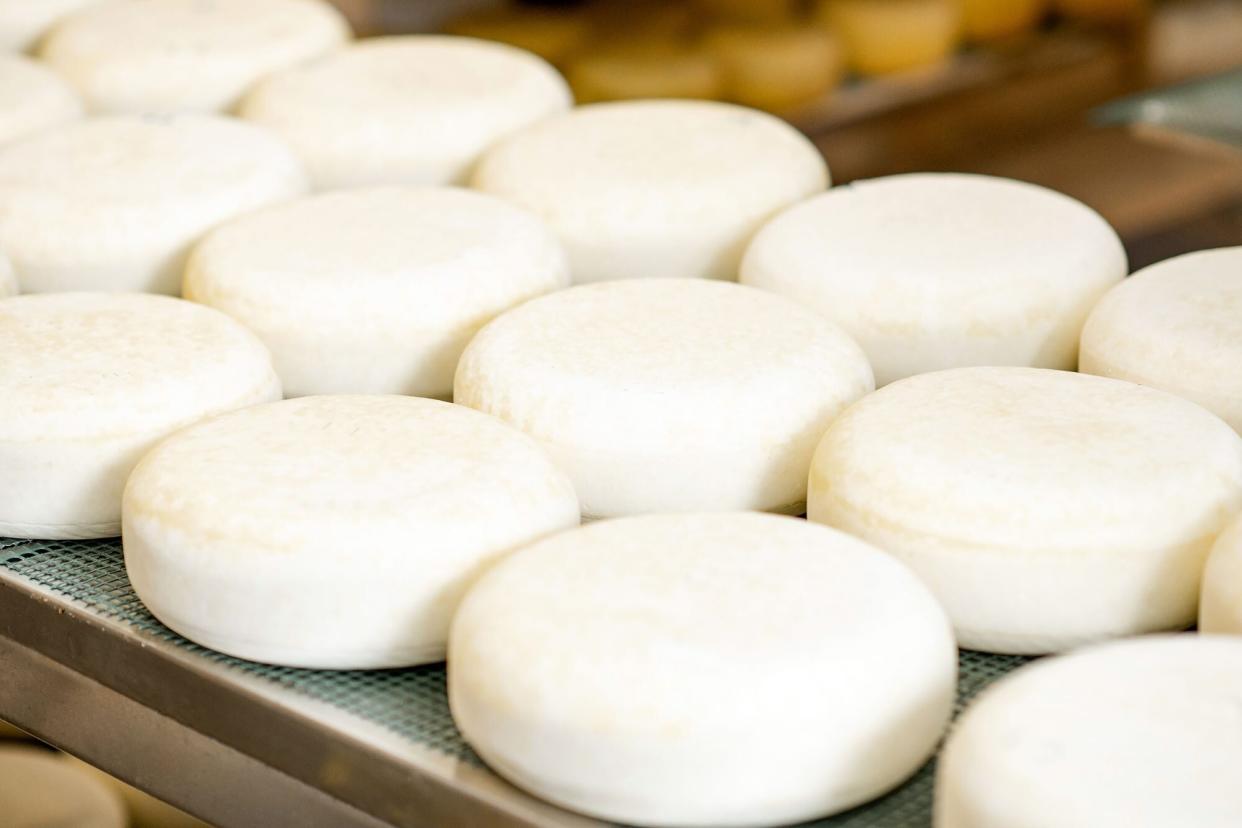50 Wheels of Smuggled Cheese Seized at U.S. Border

ROSSandHELEN photoqraphers / Getty Images
Over 20 years ago, author Spencer Johnson sold 30 million copies of his blockbuster self-help book "Who Moved My Cheese?" The book was a simple-but-repetitive metaphor involving two maze-bound mice who had to change their behavior after — you guessed it — their cheese supply switches from one part of the maze to another.
Last week, the United States Customs and Border Protection (CBP) published what could've been a standalone sequel to Johnson's bestseller, except theirs would've been called "We Seized Your Cheese." In a statement, the agency said that it discovered over 100 pounds of undeclared cheese in the backseat of a New Mexico woman's car.
The driver, who was only identified as "a female U.S. citizen," was traveling from Mexico into El Paso, Texas through the Paso Del Norte border crossing. She allegedly declared to the CBP officers that she was transporting 10 wheels of cheese that weighed around one kilogram (2.2 pounds) each. Those cheeses were located in the trunk of the vehicle, but officers noticed another 50 wheels of cheese in the backseat, underneath a blanket.
The cheese was all immediately confiscated and destroyed, and the woman was given a $1,000 civil penalty. She was then released and allowed to continue her drive into the United States. "Travelers can import cheese commensurate with personal consumption levels," CBP El Paso Port Director Ray Provencio said in a statement. "A few wheels would generally be fine but not 60. It was undeclared and that amount would be a commercial quantity and additional reporting requirements would apply."
According to the CBP's regulations, many imported cheeses can be "subject to quota restrictions" set by both that agency and the Department of Agriculture. In addition, all dairy products, including butter, cheese, cream, milk, and ice cream must adhere to the Department of Agriculture's Animal and Plant Health Inspection Service (APHIS) requirements, as well as Food & Drug Administration (FDA) requirements. (Imports on a commercial scale — like 100-plus pounds of cheese — need additional documentation, including filing "Prior Notice" of the intended import, on top of registering with the FDA.)
This kind of thing isn't limited to the United States. In August, an air traveler was fined AUD$2,664 ($1,846) after a sniffer dog in the Darwin, Australia airport smelled two egg and sausage McMuffins in the bottom of his backpack. The as-yet-unidentified man bought the two sandwiches — and a ham croissant — in Bali, Indonesia and didn't eat them during his flight.
When he landed in Australia, his uneaten breakfast was declared an undeclared biosecurity risk. The foods were confiscated, tested for foot and mouth disease, and then destroyed.
"This will be the most expensive Maccas meal this passenger ever has, this fine is twice the cost of an airfare to Bali, but I have no sympathy for people who choose to disobey Australia's strict biosecurity measures, and recent detections show you will be caught," Murray Watt, Australia's Minister of for Agriculture, Fisheries, and Forestry, said in a statement.
Although it's an expensive situation to find yourself in, at least those two travelers know exactly who moved their cheese (and their egg-and-cheese McMuffins).

